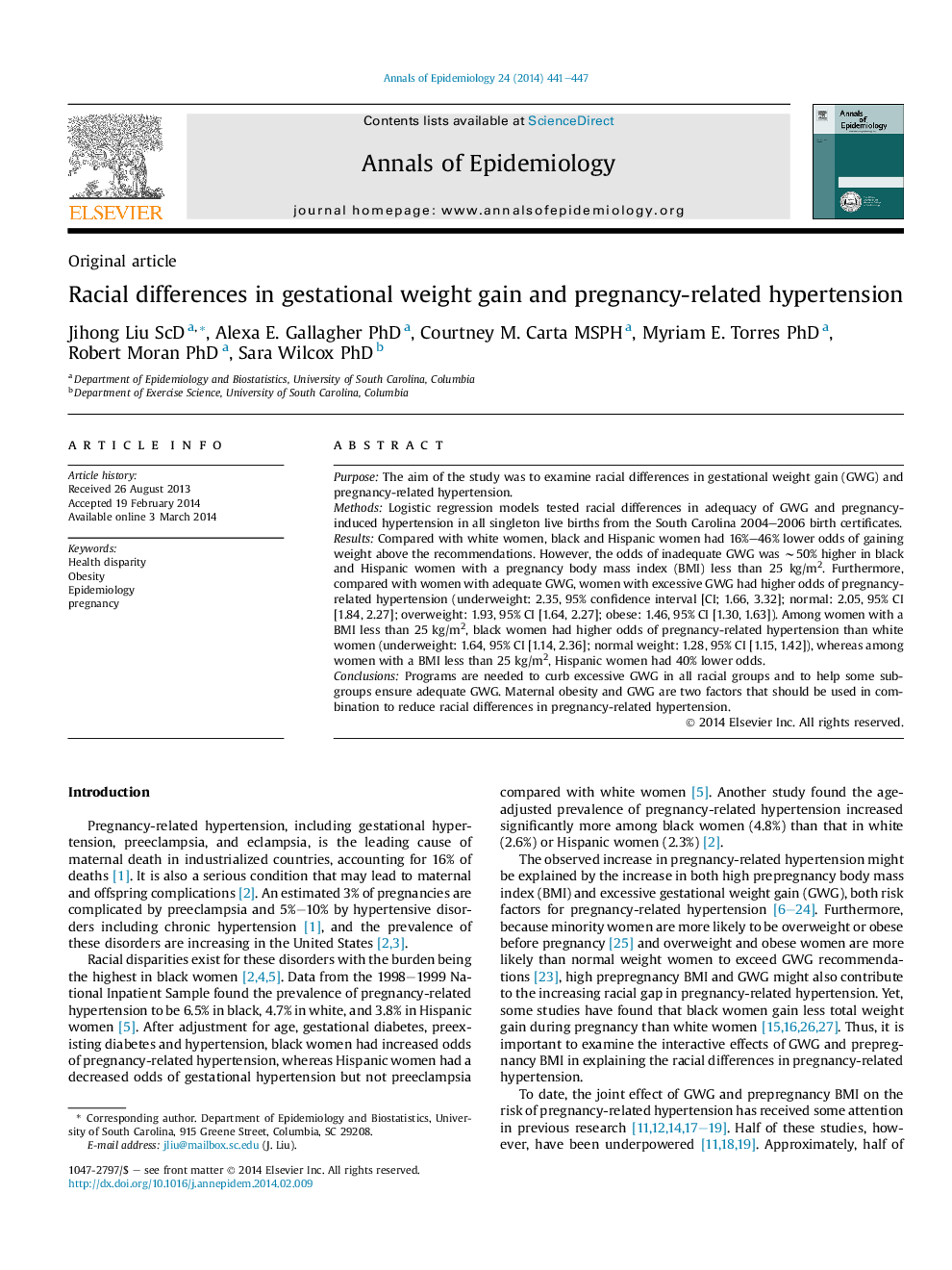| Article ID | Journal | Published Year | Pages | File Type |
|---|---|---|---|---|
| 3444284 | Annals of Epidemiology | 2014 | 7 Pages |
PurposeThe aim of the study was to examine racial differences in gestational weight gain (GWG) and pregnancy-related hypertension.MethodsLogistic regression models tested racial differences in adequacy of GWG and pregnancy-induced hypertension in all singleton live births from the South Carolina 2004–2006 birth certificates.ResultsCompared with white women, black and Hispanic women had 16%–46% lower odds of gaining weight above the recommendations. However, the odds of inadequate GWG was ∼50% higher in black and Hispanic women with a pregnancy body mass index (BMI) less than 25 kg/m2. Furthermore, compared with women with adequate GWG, women with excessive GWG had higher odds of pregnancy-related hypertension (underweight: 2.35, 95% confidence interval [CI; 1.66, 3.32]; normal: 2.05, 95% CI [1.84, 2.27]; overweight: 1.93, 95% CI [1.64, 2.27]; obese: 1.46, 95% CI [1.30, 1.63]). Among women with a BMI less than 25 kg/m2, black women had higher odds of pregnancy-related hypertension than white women (underweight: 1.64, 95% CI [1.14, 2.36]; normal weight: 1.28, 95% CI [1.15, 1.42]), whereas among women with a BMI less than 25 kg/m2, Hispanic women had 40% lower odds.ConclusionsPrograms are needed to curb excessive GWG in all racial groups and to help some sub-groups ensure adequate GWG. Maternal obesity and GWG are two factors that should be used in combination to reduce racial differences in pregnancy-related hypertension.
